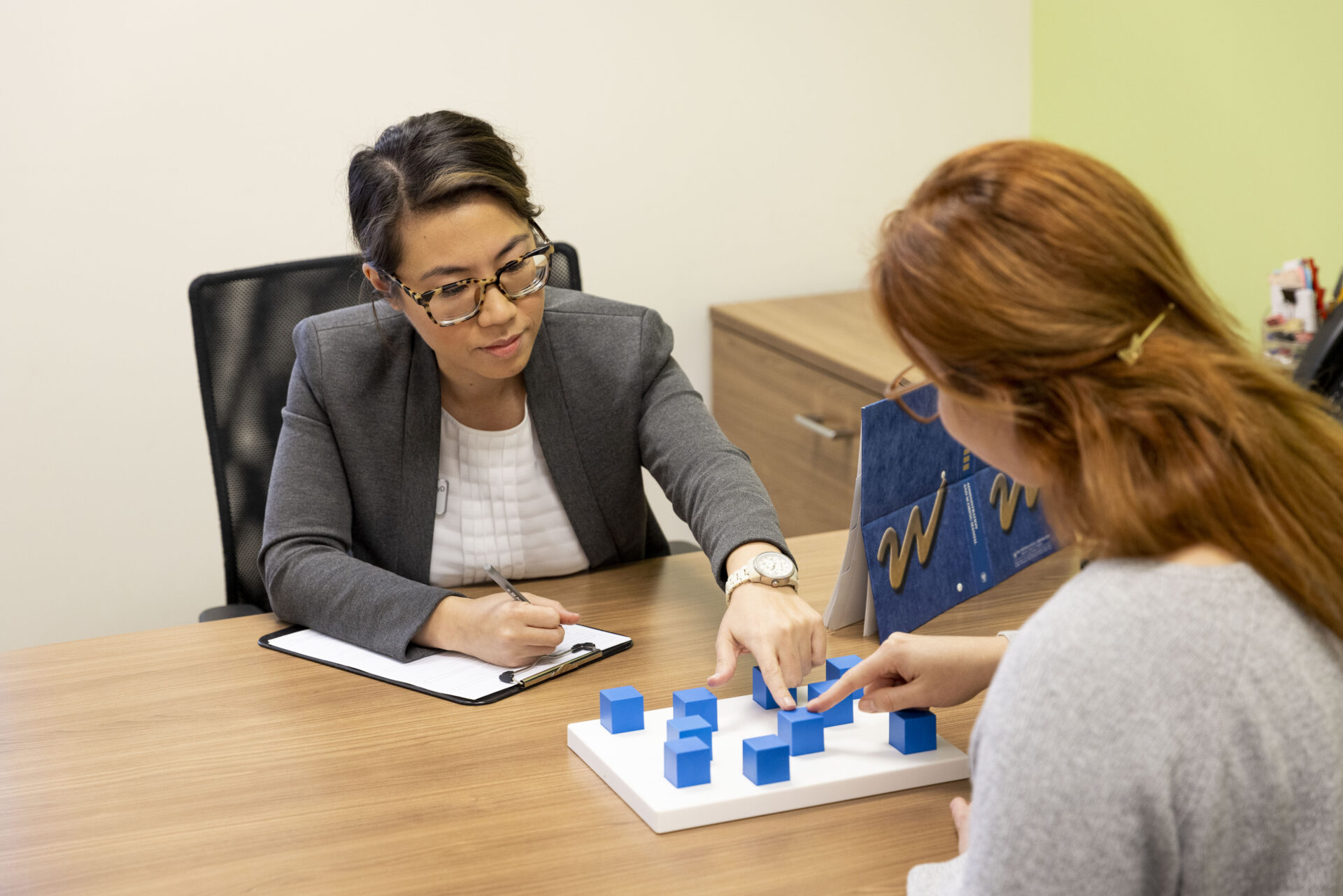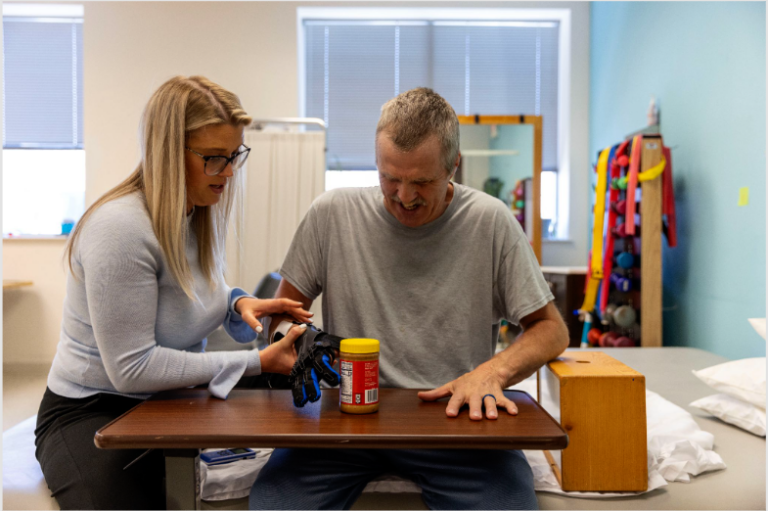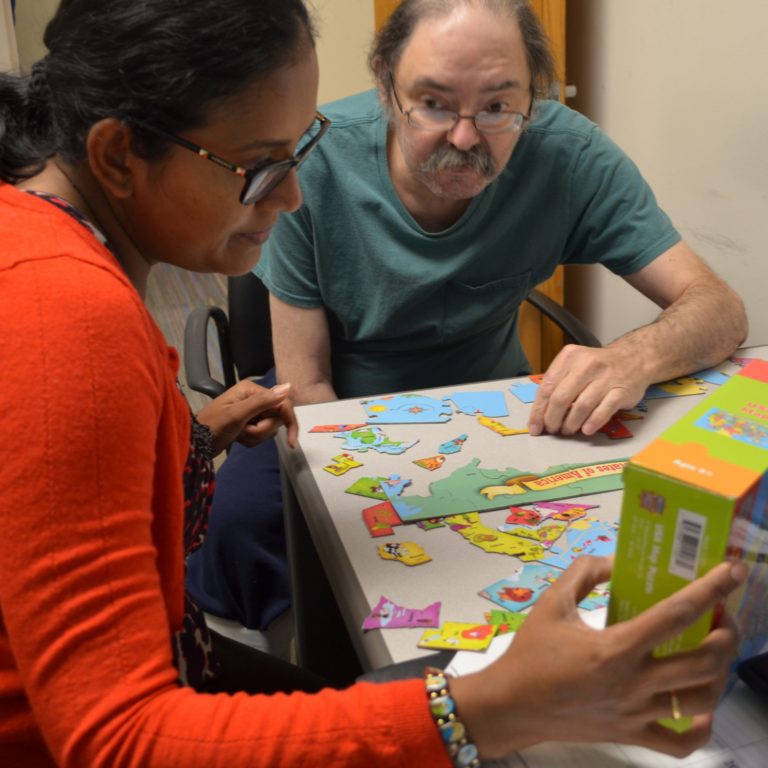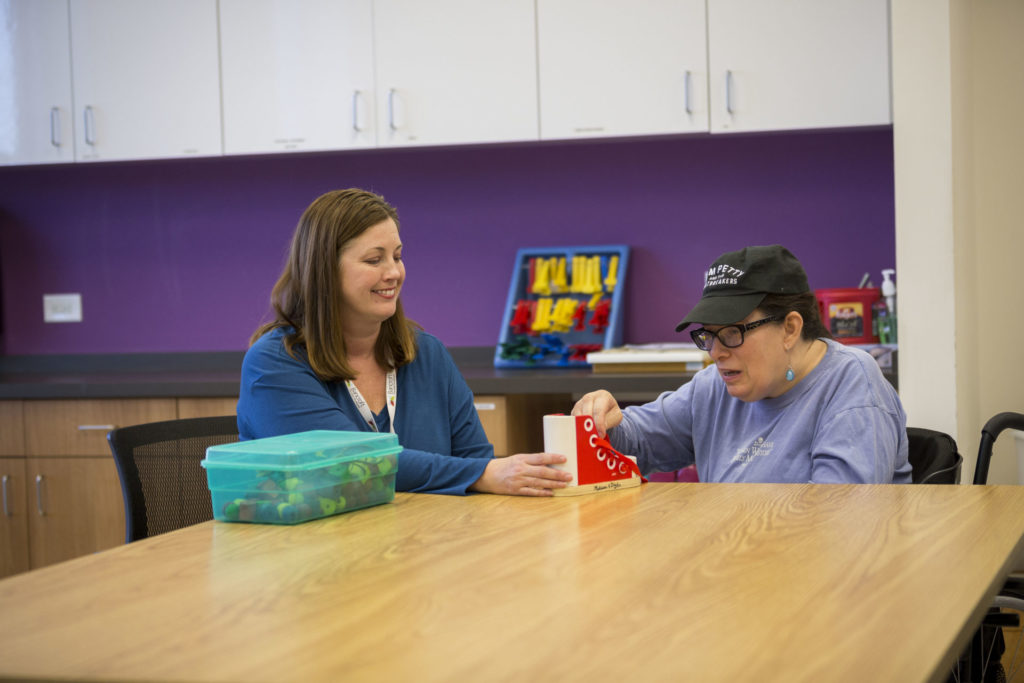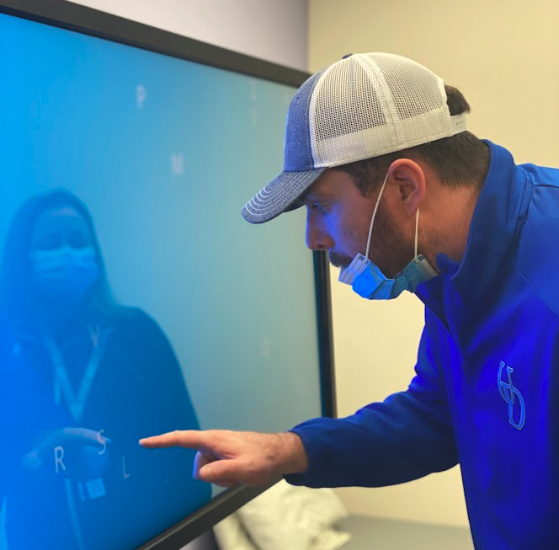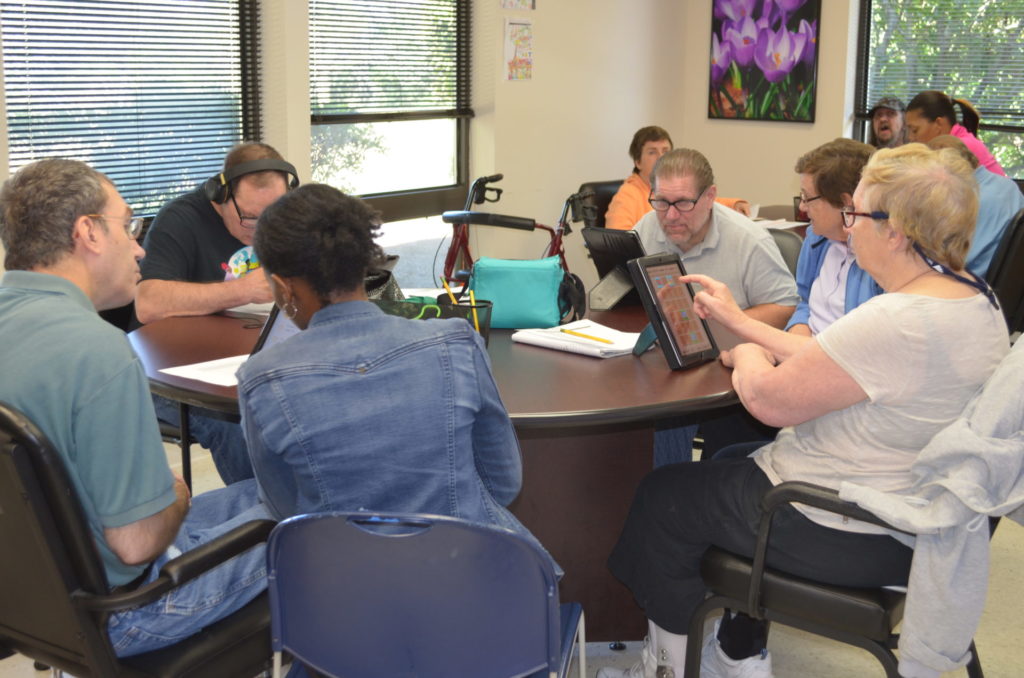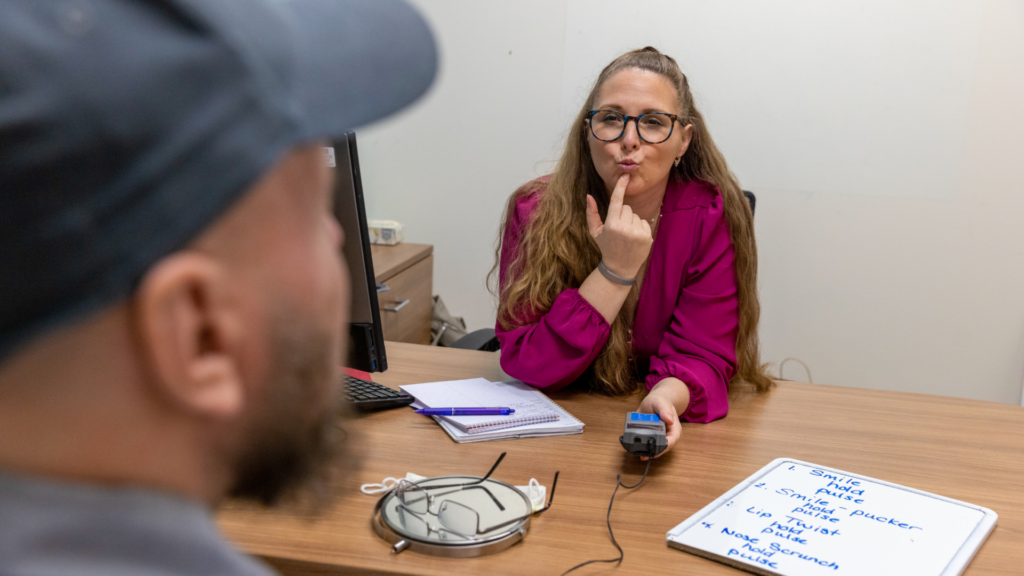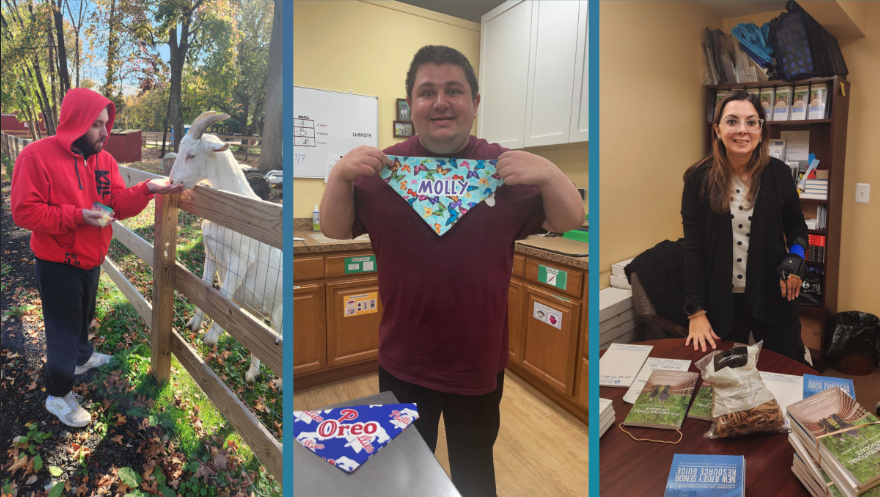Learn practical ways to support a loved one with aphasia from Bancroft NeuroRehab Speech-Language Pathologist, Michelle Valente, M.A., CCC-SLP.
Aphasia impacts about two million Americans and results from damage to the brain’s language centers. Commonly caused by stroke, brain injury, or neurological disorders, it can affect speaking, comprehension, reading, and writing.
When someone develops aphasia due to a brain injury or a progressive neurological condition, the effects ripple beyond the individual to their entire community of family and friends. Aphasia represents a loss of language, not intellect. People with aphasia can think clearly but struggle to express their thoughts.
As a family member or friend, you play a vital role in supporting their communication. The goal isn’t perfection; it’s about helping your loved one get their message across using any method that works for them.
It’s also important to be honest when you don’t understand. Let your loved one know, and ask if they’d like help or prefer to move on. This kind of open communication lets them know which messages are being received and which aren’t. Focusing on what you can do, rather than what you can’t, can make a real difference in their progress.
If your loved one hasn’t already connected with a Speech-Language Pathologist, encourage them to do so. Speech Therapy can help someone living with aphasia strengthen communication skills, improve relationships, and reduce frustration.
Here are ten practical ways you can support someone living with aphasia:
1. Get their attention first. Make sure your loved one is focused and ready before you begin speaking.
2. Minimize or eliminate all background noise (TV, radio, other discussions).
3. Speak clearly and at a normal level, unless your loved one has indicated otherwise.
4. Keep communication simple, but talk like you are talking to an adult, not a baby. Use shorter sentences, slow your rate of speech, and emphasize key words.
5. Be patient. Give your loved one time to speak and resist the urge to finish their sentences or offer words.
6. Use multiple ways to communicate: drawings, gestures, writing, and facial expressions are options. Offer paper and a pen to write down keywords or the topic of conversation.
7. Check for understanding. Use “yes” and “no” questions to confirm your message is getting across.
8. Celebrate effort, not results. Praise all attempts to communicate, and don’t worry about exact words or grammar.
9. Include them in daily life. Involve your loved one in family conversations and decisions. Don’t speak for them or avoid them. Help them stay informed, but avoid overburdening with too many details.
10. Promote independence. Encourage them to do what they can on their own. Support their progress without being overprotective.
Most importantly, remind your loved one that even years after a brain injury, your brain can still improve. Encourage your loved one to stay engaged, keep trying, and celebrate every step forward, no matter how small.
Remember, you don’t have to do it all alone. Community aphasia support groups can help lighten the load by offering encouragement, connection, and insight from people who truly understand. Many groups also include sessions for caregivers, so you can find support for yourself, too.
Additional Resources
ABOUT THE EXPERT


Michelle Valente has worked in the field of neurologic communication disorders for over 20 years, specializing in traumatic brain injury and stroke rehabilitation. Her expertise spans both inpatient and outpatient rehabilitation and home care services. Michelle is a licensed Speech-Language Pathologist, an affiliate of the National Aphasia Association and a member of the Academy of Neurologic Communication Disorders and Sciences. She has a Master’s Degree in Speech-Language Pathology from St. John’s University.



